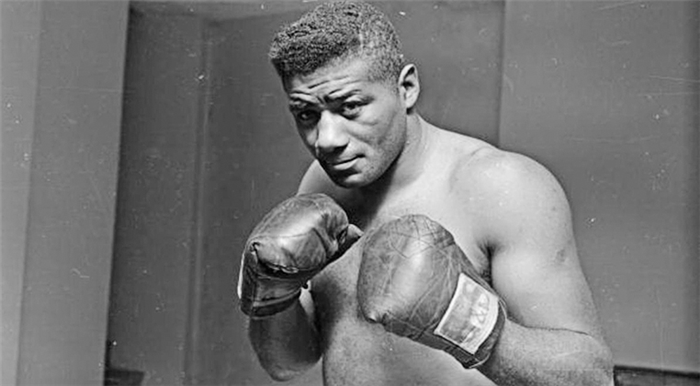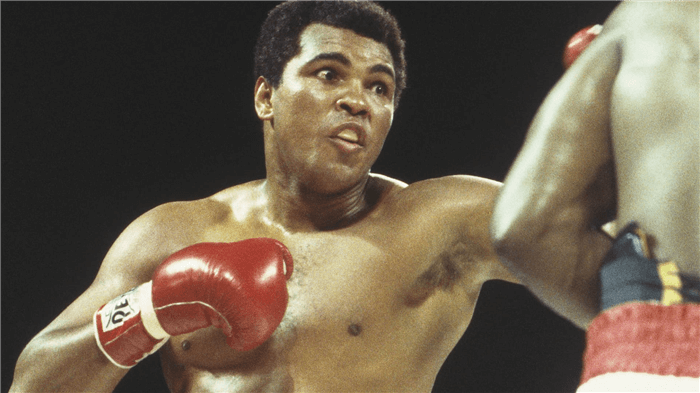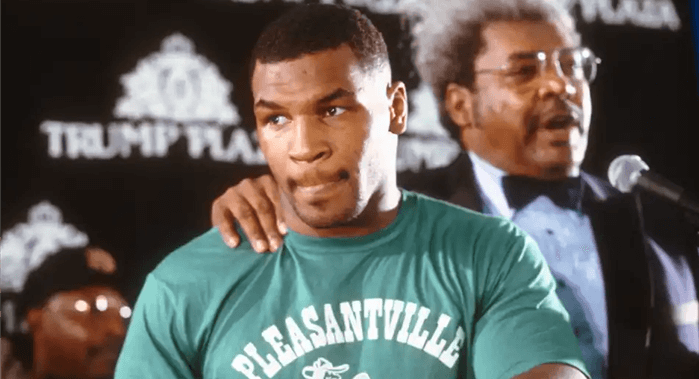Here are the top ten youngest heavyweight champions in boxing history.
10. Wladimir Klitschko, 24 years, 6 months, 19 days
The scariest thing about the appearance of ‘Dr Steelhammer’ here is that this spell as champion was not even considered his peak. Klitschko would go on to reign from 2006 to 2015 during his second period as champion.
But his first title win showed the promise Klitschko had. It came in a bit of brotherly revenge. Chris Byrd had won the WBO title from Wladimir’s brother, Vitali, when ‘Dr Ironfist’ couldn’t continue after a shoulder injury. Klitschko retrieved the family silver with a unanimous decision over ‘Rapid Fire’.
9. Michael Dokes, 24 years, 4 months
Compared to the other names on this list, Dokes is something of a forgotten man. Winning the WBA title at a time when WBC boss Larry Holmes was considered the true champion, the reign of ‘Dynamite’ is underappreciated.
Stopping Mike Weaver in a single round to win the title, there were accusations that the referee was overly cautious after the recent death of Duk Koo-Kim against Ray Mancini. A rematch was set, in which Dokes retained his title via a majority draw. Big-punching South African Gerrie Coetzee would relieve him of the belt in his next fight.

8. James J. Jeffries, 24 years, 1 month, 25 days
Considered one of the early greats of heavyweight boxing, precious little film exists of his prime. But what a prime it was. Jefferies wrote himself into the history books by beating Bob Fitzsimmons, the sport’s first three-weight world champion.
Jefferies scored signature victories over James J. Corbett, Tom Sharkey and in a rematch with Fitzsimmons. He would retire after a 1910 defeat to the great ‘Galveston Giant’ Jack Johnson.
7. Joe Frazier, 24 years, 1 month, 21 days
‘Smokin’ Joe started young, even if he always carried the air of an old and dangerous soul. Frazier is the man who would carry boxing through Muhammad Ali’s three-year ban, and give ‘The Greatest’ his first defeat upon his return. It all began in 1968.
That was the year the fearsome Philadelphian knocked out Buster Mathis in eleven rounds to claim the New York version of the heavyweight title. Only Oscar Bonavena and Ali would ever take him the distance during a dominant five-year reign, during which he unified the championship. Frazier eventually came unstuck against the next man on this list.
6. George Foreman, 24 years, 0 months, 12 days
More famous for being the oldest champion of all time, when he captured the title aged 45 two decades later, Foreman is also among the youngest titleists.
‘Big’ George knocked out the aforementioned Frazier in a stunning upset in 1973. It took Foreman just two rounds to break down the most feared man on the planet. After stopping Ken Norton and Jose Roman in three combined rounds, Foreman came unstuck against Ali in ‘The Rumble in the Jungle’.

5. Jack Dempsey, 24 years, 0 months, 10 days
‘The Manassa Mauler’ is stitched into the very fabric of boxing. The painting ‘Dempsey and Firpo’ saw the boxer transcend sport to become a cultural icon. But what he did in the ring has made him a name that true aficionados still invoke to this day when a young fighter is pegged as the next great heavyweight.
Dempsey’s coronation was ferocious. Less than two weeks removed from his 24th birthday, he swarmed Jess Willard to a third-round knockout defeat. Five more championship opponents would fall, four inside the distance, before Dempsey lost the title to Gene Tunney.
4 Joe Louis, 23 years, 1 month, 9 days
‘The Brown Bomber’ has long been the big man against which all others are judged. That’s what happens when you have won more heavyweight title fights than any boxer in history. That magnificent journey began when Louis was just a young man of 23.
Beating James J. Braddock, later immortalised on film by Russell Crowe in ‘Cinderella Man’, Louis embarked on a reign never to be repeated. For 13 years he would beat all comers, including Max Schmeling, Billy Conn and Jersey Joe Walcott. By the time he lost to Ezzard Charles, he was 36 years of age.
3. Muhammad Ali, 22 years, 1 month, 8 days
Even ‘The Greatest’ had to start somewhere. When he still went by Cassius Clay, ‘The Louisville Lip’ arrived on the world stage when he stunned the feared Sonny Liston in 1964.
Ali would repeat the feat in a rematch, creating the iconic scene of himself standing over Liston, imploring his man to get to his feet. Liston didn’t and the bout was over in the first round. Questions were asked about the result but Ali would an
swer every question anyone had about him over the ensuing decades, proving himself both as a champion and a man.
2. Floyd Patterson, 21 years, 10 months, 26 days
Despite the fact their reigns arrived eight days shy of exactly 30 years apart, our top two shared the same mentor. Bronx fight tutor Cus D’Amato masterminded Patterson’s ascent to the heavyweight throne, before providing a stable father figure to our bill-topper.
Patterson was crowned with an excellent destruction of Archie Moore. His reign would be turbulent. Wilting in the shadow of a disbelieving public, Patterson would make four defences before losing the title to unheralded Ingemar Johansson. He beat the Swede in a pair of rematches, but the destructive Liston relieved him of the belt via first-round knockout.

1. Mike Tyson WBC November 22, 1986 20 years, 4 months, 23 days
It is hard to envision anyone beating the record Tyson holds as boxing’s youngest heavyweight champion. No other fighter has packed such ferocity, power, speed, acumen and intensity into one 20-year-old package.
Anathema to the way promoters build their prospects today, Tyson was 18-0 after 12 months as a professional. None of those opponents had managed to take him the distance. 27-0 by the time he met WBC champion Trevor Berbick, ‘Iron’ Mike was still less than two years into his career. After a two-round destruction to lift the belt, Tyson began an era of dominance that is still felt in the wider culture of boxing today.
